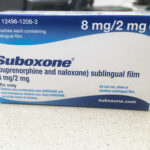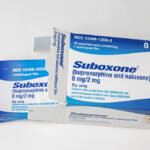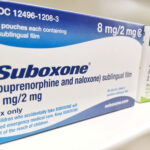Just as there are multiple accidents that can cause brain injury, there are several types of head and brain injuries.
Table of Contents
Mild Brain Injury
A Mild Brain Injury is difficult to diagnose. EEG, MRI, and CAT scan testing may reveal no changes to the brain after an accident. Physical and Behavioral symptoms are usually the key to diagnosing an MBI. A Mild Brain Injury may happen from receiving a concussion.
A concussion can be received from a variety of accidents. A car accident, a sports injury, or a fall can all cause a Mild Brain Injury.
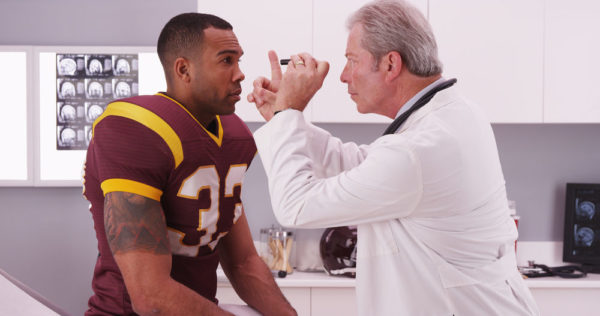
Acquired Brain Injury
Oxygen is a necessary element for the brain to survive. It requires a steady flow of oxygen at the correct level. An Acquired Brain Injury happens when oxygen fails to get to the brain or there is a low level of oxygen getting to the brain. It is not a congenital or genetic injury and it is not one that happens in the birth process. The causes of an ABI can include a stroke, aneurysm, heart attack, drop in blood pressure or blood volume, near drowning, a lack of oxygen during surgery, or a blocked airway.
An ABI can also happen because of exposure to toxic or hazardous materials. Lead exposure can be dangerous in large quantities. Lead is found in house paint from before 1978. Lead can also be found in water pipes in older homes. There have also been numerous recalls of toys in the last year that have an unacceptable level of lead. There are other hazardous chemicals such as carbon monoxide that can cause an Acquired Brain Injury.
Illegal drug use can also be a cause of an Acquired Brain Injury. They may restrict blood flow to the brain or suppress breathing and reduce the amount of oxygen going to the brain.
Traumatic Brain Injury
Traumatic Brain Injuries (TBI) are caused by a number of things. Falls are the most common cause of TBI. In fact, 28% of TBI cases were caused by a fall. Motor vehicle accidents are also a large cause of TBI. Traumatic Brain Injuries can also occur from being struck, assault, child abuse, firearms, sports, and bike accidents.
Slipping and falling is the largest cause of a Traumatic Brain Injury. If someplace is not properly maintained there may be a hazard of falling. While falling there is a danger of hitting your head and causing injury. The brain may move inside the skull on impact or the skull may be broken allowing the brain to be injured directly. A child may fall from playground equipment onto a hard surface.
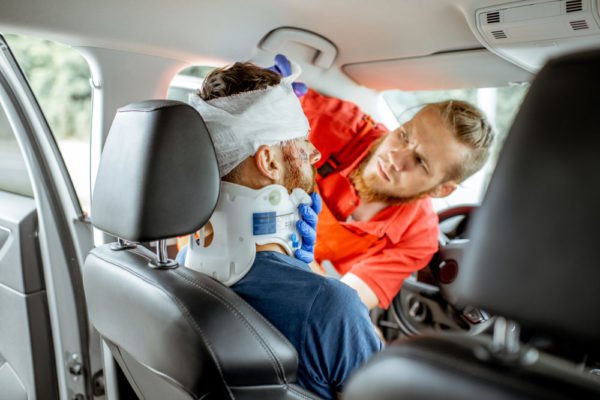 Motor vehicle accidents are another cause of TBI. If someone is not properly restrained in a vehicle at the time of an accident the risk of a TBI is high. The risk of whiplash is always a possibility in a car accident even when wearing a seat belt. Children who are not properly restrained in a correctly installed car seat are at risk. A motorcycle rider without a helmet is at a very high risk of a TBI.
Motor vehicle accidents are another cause of TBI. If someone is not properly restrained in a vehicle at the time of an accident the risk of a TBI is high. The risk of whiplash is always a possibility in a car accident even when wearing a seat belt. Children who are not properly restrained in a correctly installed car seat are at risk. A motorcycle rider without a helmet is at a very high risk of a TBI.
A person being struck while playing sports or during a recreational activity causes 19% of all Traumatic Brain Injuries. A player could be hit by a ball or tackled by other players. A fan watching a game from the stands could be hurt by a loose ball or puck.
Shaken Baby Syndrome affects the youngest of children. The act of shaking a crying baby by a caregiver causes the brain to move inside the skull. The abuse results in a swollen and bleeding brain that can cause permanent injury or death.
91% of those who suffer from a TBI as a result of a firearm die. The majority of those injuries are due to a suicide attempt. Violence against others makes up the rest of the cases.
Around 3% of all Traumatic Brain Injury is caused during a bicycle accident. Failure to wear a helmet increases the chances of suffering a TBI.
Head Injury Treatment
In the case of all head and brain injuries, Traumatic, Acquired, and Mild, the first step should always be a trip to a hospital emergency room. Being treated soon after the initial accident can be a huge factor in recovery. After an accident, if there is any loss of consciousness that is a sign that a brain injury has occurred.
It is the job of doctors and other health professionals to assess the situation and decide on a course of treatment. Depending on the state of injuries, several diagnostic tests may be performed including blood work, EEG, MRI, and CAT scans.
Surgery and medications may be used in order to treat the patient. When the patient is able a physical and occupational rehabilitation plan may be created to help them regain function and improve the quality of life.
Read the next article: Mild Brain Injury

